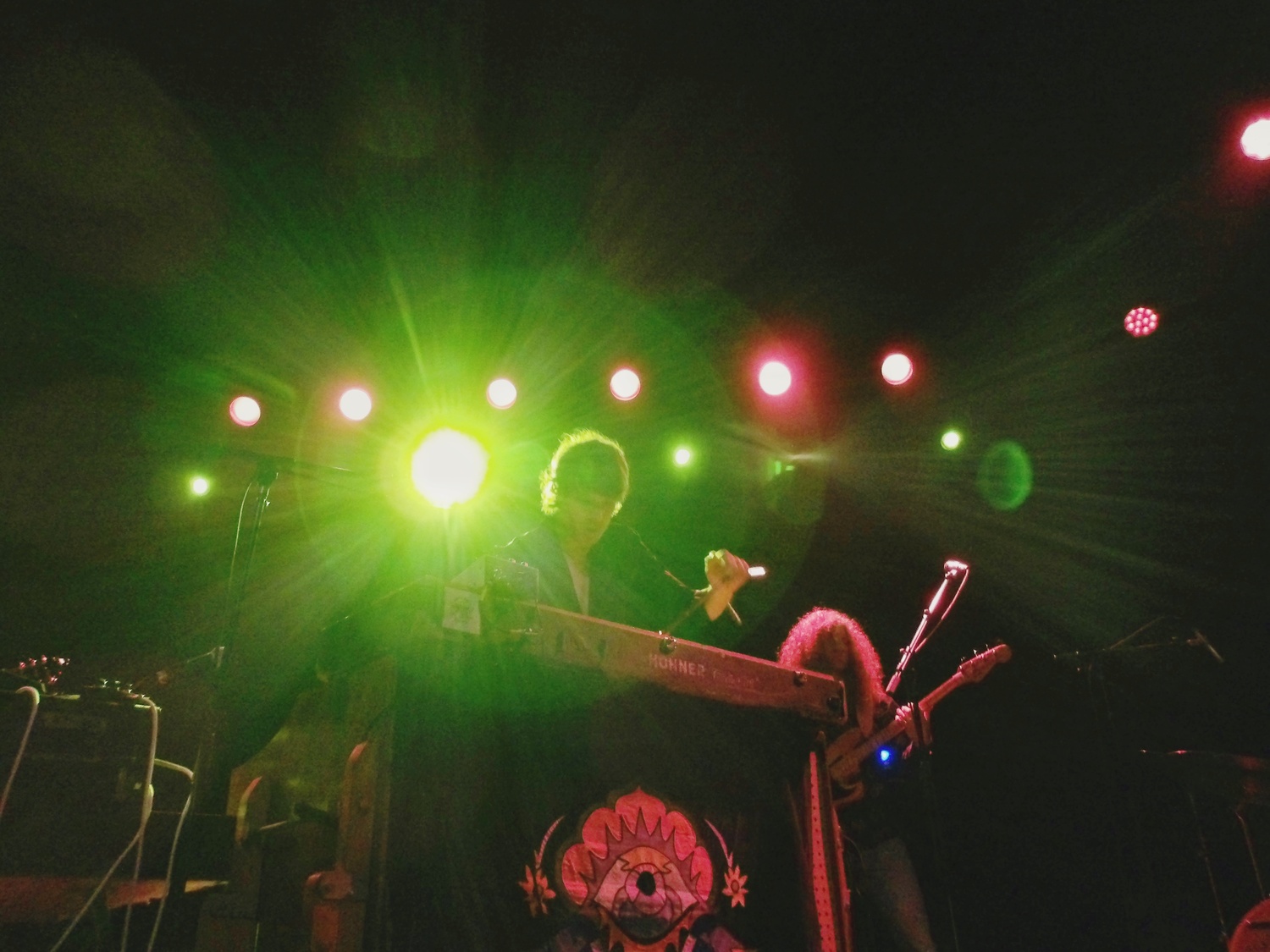
News
Summers Will Not Finish Semester of Teaching as Harvard Investigates Epstein Ties

News
Harvard College Students Report Favoring Divestment from Israel in HUA Survey

News
‘He Should Resign’: Harvard Undergrads Take Hard Line Against Summers Over Epstein Scandal

News
Harvard To Launch New Investigation Into Epstein’s Ties to Summers, Other University Affiliates

News
Harvard Students To Vote on Divestment From Israel in Inaugural HUA Election Survey
Neal Francis Concert Review: Funk is Alive and Well in Cambridge

It requires a double take to be completely sure that the man on stage is not a young Mick Jagger. But on March 26, the marquee at the Sinclair in Cambridge confirmed that it was, in fact, not a Stones cover band but rather Neal Francis — an artist far from the gimmick of emulating his influences. And while Francis’ shag haircut and rainbow striped flares exude equal amounts of kitsch and swagger, once he starts playing, Francis proves that not an iota of his quiet confidence is unmerited.
The opening song of the set, “Problems,” saw the frontman in his element, head thrown back while he alternated between two keyboards, cooing into the microphone over a driving kick-drum beat. Francis spent most of the show tucked away, hidden in the benches behind these two keyboards, and his stage presence took form not in dance moves but in blissed-out facial expressions and authoritative toe-taps.
“Already Gone” followed, proving bassist Mike Starr and guitarist Austin Koenigstein to be pillars of Francis’ funk. Starr’s properly dirty bass line was overlaid by Koenigstein indulging himself in a truly excellent guitar solo. Rolling into “How Have I Lived” and “What’s Left of Me,” the band continued to strut through true rock and roll, supported by drummer Collin O’Brien’s precision. Evoking ’70s icons like T. Rex and Sly and the Family Stone, these tracks demonstrated Francis’ roots in classic blues and jazz, their glam rock offspring, and Francis’ own creative muscles.
After a breath, “Dirty Little Secret” relaxed the pace — a lush psychedelic landscape of instrumentation. Some magic brewed between Francis’ two keyboards, offering at once a grainy growl and a twinkling melody. “Very Fine, Pts. 1 & 2” continued the psych-rock feel, a track that barrels with conviction. O’Brien flew on the drums until Francis looked to his band for a nod of affirmation, kicking off Francis’ meandering piano solo to wind down the track.
“Can’t Stop the Rain” built the rock groove to a peak, showing the band letting loose in their element. Francis strolled around the stage to his bandmates, sharing a dance and even a high-five with his co-creatives in moments of unadulterated praise. “Sentimental Garbage” took a more modern sonic twist, with a low-key groove rivaling that of Tame Impala or King Gizzard & the Lizard Wizard.
The next three tracks were woven together into a couple dozen minutes of pure funk excellence. He started with his most popular track, “Changes, Pts. 1 & 2.” Francis drapes a sultry vocal line loaded with charisma over an addictively funky bassline and a perfectly danceable chanking guitar riff. The Sinclair’s disco ball bathed the boogying crowd in light in a moment that seemed to be the embodiment of the purpose of all disco balls everywhere.
And if it seemed to anyone that the moment could not get better, Francis brought out the openers, Atlanta-based Improvement Movement, to croon the hook of “Need You Again” over the instrumental outro of “Changes,” resulting in an impossibly catchy and flawlessly harmonized arrangement. Finishing the trifecta with “Broken Glass,” the stage became the pipe dream of every jam band and the definite highlight of Wednesday night’s set. Between each snap of the cymbal was a swell of untethered groove — a push and pull of precision against fervor.
These days, the average concert delays gratification in their audience by saving the best song for last, even if it would fit better in a different place on the setlist. It’s rare to see an artist create a story with their setlist, but after the climax of “Changes,” “Need You Again,” and “Broken Glass,” Francis’ set winded down in an admirable sequence of falling action. The regular set closed with the pleasant groove of “BNYLV,” and the encore was a single song, “150 More Times,” that leaned into glam rock influences — less awe inspiring than the previous songs, but certainly as enjoyable as ever.
Neal Francis has mastered the art of the groove — honoring a star-studded roster of influences while simultaneously staying undeniably himself. Perhaps the measure of a good funk artist is their ability to induce dancing. Based on the perpetual motion in the crowd at the Sinclair, then, Francis is undoubtedly one of the greats.
—Staff writer Asha M. Khurana can be reached at asha.khurana@thecrimson.com.
Want to keep up with breaking news? Subscribe to our email newsletter.
